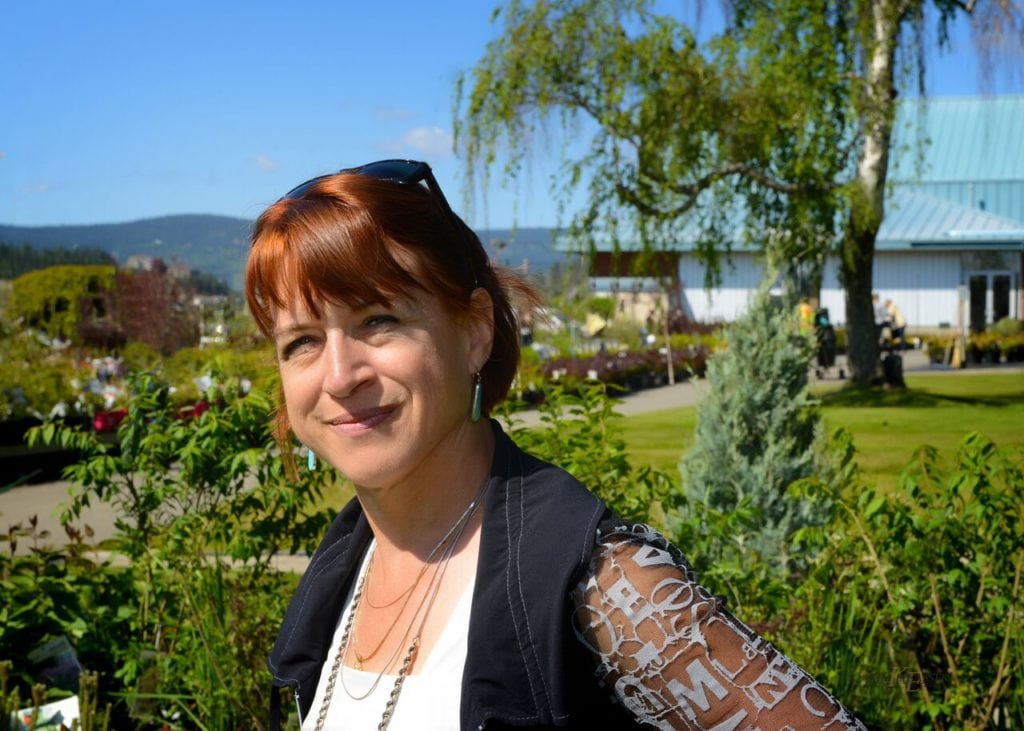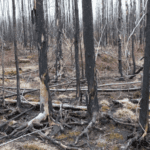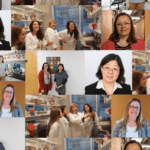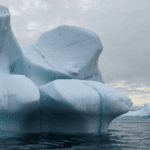Anna Warwick Sears isn’t one to succumb to impostor syndrome, a trait that has helped her immensely on her career path. “I once sat on a women in science panel about impostor syndrome,” she recalls. “Over the course of the evening, I decided that I don’t suffer from this, but I listened hard to other’s experiences. In my experience as an employer and mentor, women are often more prepared than men but don’t realize it.”

Sears didn’t start studying science until she was 28, when she entered Santa Rosa Junior College in California with nothing but a high school diploma and no math or science coursework. Prior to entering college, Sears had been doing carpentry and working with her husband to build custom homes. She also enjoyed gardening—the first science book she ever read was about composting.
“I never considered being a scientist,” she recalls. “Almost everyone in my family was an English major or a teacher. I sort of assumed I’d do the same, though the thought of it bored me.” She also notes that she graduated from high school in the midst of the 1982 recession, so college wasn’t a priority as most people she knew with college degrees were under- or un-employed.
Though Sears didn’t know any working scientists, in retrospect she realizes her interest in biology was kindled early on. “My grandmother wanted to be a doctor but, because she was a woman, she wasn’t allowed into medical school,” says Sears. “Instead she did a degree in zoology and became an elementary school teacher. She had a fabulous botanical garden. She used to show me interesting spiders, insects, and plants, which I thought was extremely cool.”
Sears ended up in what she calls an “instant family” at age 19, when she met her husband and his two daughters. Given her family situation, Sears’ choice of colleges and universities revolved around their proximity to home. “My step-daughters were in high school and college while I was in college and university, so we were all students together,” she says. “I built my career around my family responsibilities—not vice versa. I was lucky we lived in an area with decent schools so I didn’t have to relocate.”
Sears finished an Associate of Science degree in three and a half years at Santa Rosa, then transferred to Sonoma State University and graduated with a BS in Plant Ecology (1998). She went on to the University of California, Davis to do a PhD in population biology (2004), for which she used mathematical models to look at how plant populations in arid environments grow or decline in response to competition and resource availability.
So how did a late-blooming PhD student studying plant populations end up as the Executive Director of the Okanagan Basin Water Board (OBWB), the Chair of the Board of Governors of the Real Estate Foundation of BC (REFBC), and a Board Member of the International Osoyoos Lake Board of Control (IOLBC)?
“On the surface, what I do now has no relation to my graduate work,” Sears admits. “But from another angle, it’s completely congruent. My grad school interests were all about understanding complex interacting systems and driving factors. The training and mindset I developed fits very well with understanding the political and social ecology of natural resource management. There are also many areas of water research that involve modeling, such as examining the ecological interactions between landscapes and water quality. It’s extremely handy to have a background in ecology and population biology when you have my job.”
Through the OBWB, Sears is in charge of finding funding to support big, ambitious water science projects. She helps set science priorities for her region, organizes research consortiums, works with academics, and works to improve long-term data sets. She’s involved in many projects outside of her academic training, from hydrogeology to climate modeling.
“It’s all very fun,” she says. “Everything I do is interconnected, and conceptually connected to my research field. My graduate work was basic and theoretical, and my current work is much more applied. Plus I have a lot of freedom, which is important to me, and I get to work on things that matter in the world.”
How did Sears make the transition from academia to non-profit work?
“I’d started considering non-academic careers when I still had 2-3 years left in my degree,” says Sears. “I down-played my publications on my resume, as I thought they were too theoretical. In the end I got two job offers, and ended up as the research director of an environmental non-profit. It didn’t involve commuting, and since it was a new position I was able to help define the scope of the job duties.”
While at this job, Sears lived in the same town where she’d attended university and connected with many other women, former classmates who were already working in environmental companies. “We used to joke about how we dominated the local scene. We gave each other a lot of support and encouragement to figure things out.”
After two years she started looking to relocate to Canada. Sears set aside an hour before work every day for the job search, and found her current job on the internet after searching for about six weeks.
Despite the support she received from her husband throughout her degree, and the fact that she was well-funded by fellowships and grants, Sears was still aware of the difficulties of balancing family and a university-based science career. “I published a paper about this in the Journal for Women and Minorities in Science and Engineering. Basically, I looked at how women who start grad school wanting to be university researchers change their minds halfway through and search for career alternatives. It’s extremely difficult to do grad school, post docs, and then pursue tenure as a woman who wants to have a family.”
She notes that the academic tenure and rewards system is difficult for women because, as she describes it, “it was set up for men in semi-monastic environments.” While Sears’ sister just made full professor in a social science, she had to fight to get it. “She was being blocked by a man in her department. The women at her university joke that full professorship is the new glass ceiling.”




